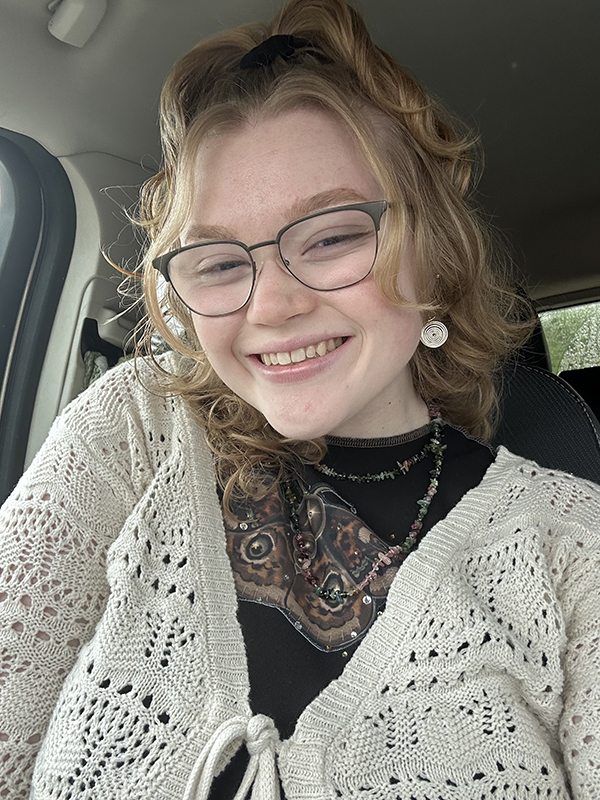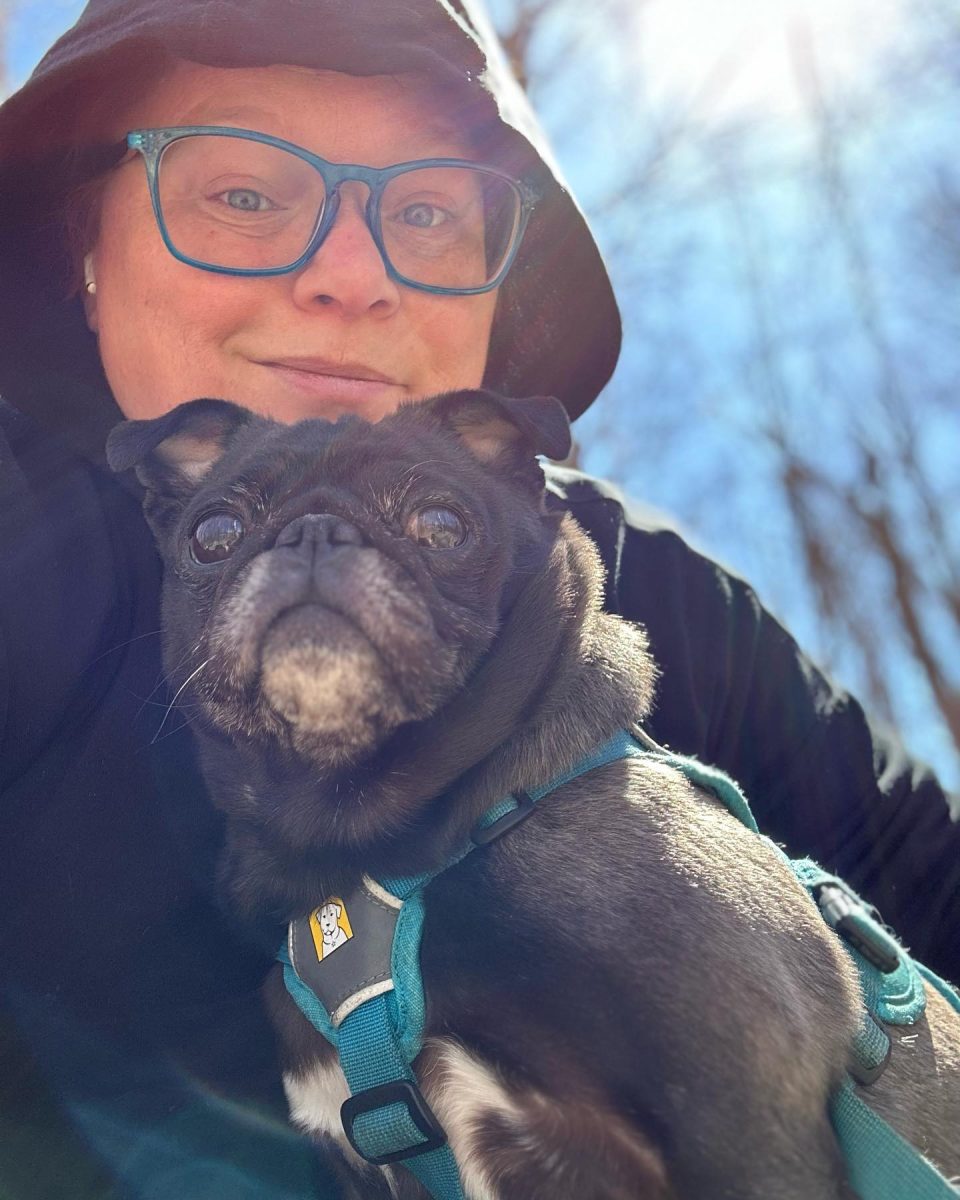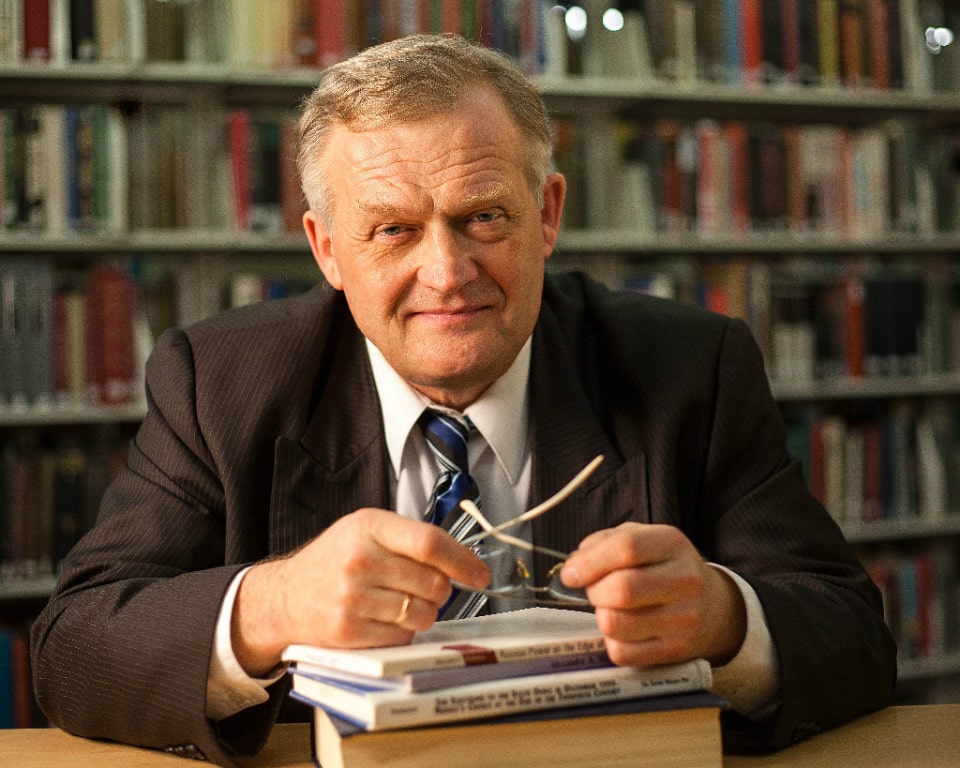His title may seem vaguely sinister, oxymoronic, and just plain mysterious depending on how you feel about chemicals, but for Johnson State College Chemical Hygiene Officer Keith Kirchner, it’s all in a day’s work.
His many responsibilities include handling the disposal of hazardous waste, maintaining the pool in SHAPE, keeping art and science equipment up to date, troubleshooting IT problems with specialized scientific software, and cleaning up chemical spills. “Chemical hygiene officer is sort of an all-encompassing job description,” Kirchner said. He has to make sure that the school meets the federal Occupational Safety and Health Administration (OSHA) requirements for safe handling of toxic substances in the visual arts and science fields.
If there is a minor chemical spill or ventilation problem, Kirchner is responsible for determining what action needs to be taken, be it evacuating the building, cleaning up the spill, or opening a window. “Years ago, before we updated our facilities, we had a fuel oil spill which was a pretty big deal,” he said. “We’ve had some serious ventilation issues in the past when equipment broke down, or somebody will be using materials they’re not supposed to be using. In some cases I’ve evacuated a building if somebody’s done something stupid. It’s usually human error that’s the problem.”
The most common of the problems Kirchner gets called for is broken equipment.
“People break things because they’re inexperienced, especially at the student level,” he said. “Which is to be expected—I mean that’s what you come here for—to learn.”
Kirchner arrived at JSC in 2003 and got to work setting up a functional chemical hygiene program. He replaced outdated equipment and generally raised the standard of maintenance and safety.
The pool is one of the facilities Kirchner has improved. When he first arrived, the pool was constantly closing for repair. Kirchner discovered that the system had been managed poorly. “[The problem was] overfeed of chemicals, incorrect chemicals and very poor maintenance, plus a lot of decrepit equipment that needed replacement,” he said. “That’s all been rebuilt.”
Kirchner also managed to nearly eliminate the hazardous waste produced by the college by replacing hazardous chemicals with safer alternatives in the laboratory and finding ways to recycle other materials. According to Kirchner, about 95 percent of the hazardous waste produced by the college has been either eliminated from use or recycled since he came.
Kirchner has had a lot of experience with the safe handling of hazardous materials. After graduating from Wayne State University in his home state of Michigan, he worked as a laboratory manager for a company that supplied chemicals to General Motors and Ford. When the federal government began instituting environmental laws, Kirchner worked to manage a new division focused on helping the big automotive companies meet the new requirements in workplace safety and hazardous waste removal. “[For example,] we went into a [General Motors] barrel recycling plant,” he said. “What they would do is take whatever residue was left in the barrel—and who knew what it was, everything from cyanide to acids—they would just dump it in the drain. It’d end up in the river directly. We would go in and put in the environmental controls, and we’d analyze what they’re dumping down the drain to find out what it is so they could put in a waste treatment plant.”
Kirchner left his job to pursue organic dairy farming but ran into trouble with the aggressive multinational agriculture corporation Monsanto. “They came out with BST, or bovine somatotropin hormone, an artificial hormone that they would inject daily into cows,” Kirchner said. “People were worried about the safety of it. [Monsanto] got a law passed that said you can’t question the safety of it, you can’t even tell somebody whether you use it or not.” Kirchner said that organic farming doesn’t allow the use of artificial hormones, and Monsanto sued him and tried to get his products off the shelves.
While the suit was unsuccessful for two years, eventually Kirchner tired of the legal fees and harassment. He moved to Vermont, where he set up a cheese making business, designed dairy and food processing plants, and provided workshops in building design at UVM before he came to JSC.
In addition to his job as chemical hygiene officer, Kirchner helped create the community garden behind the college apartments.






